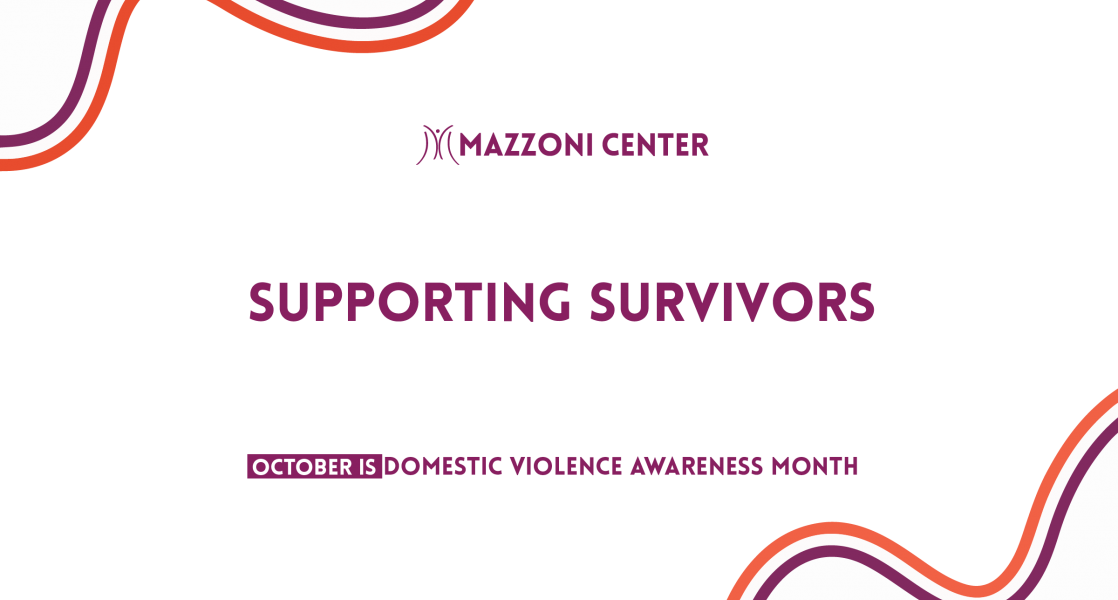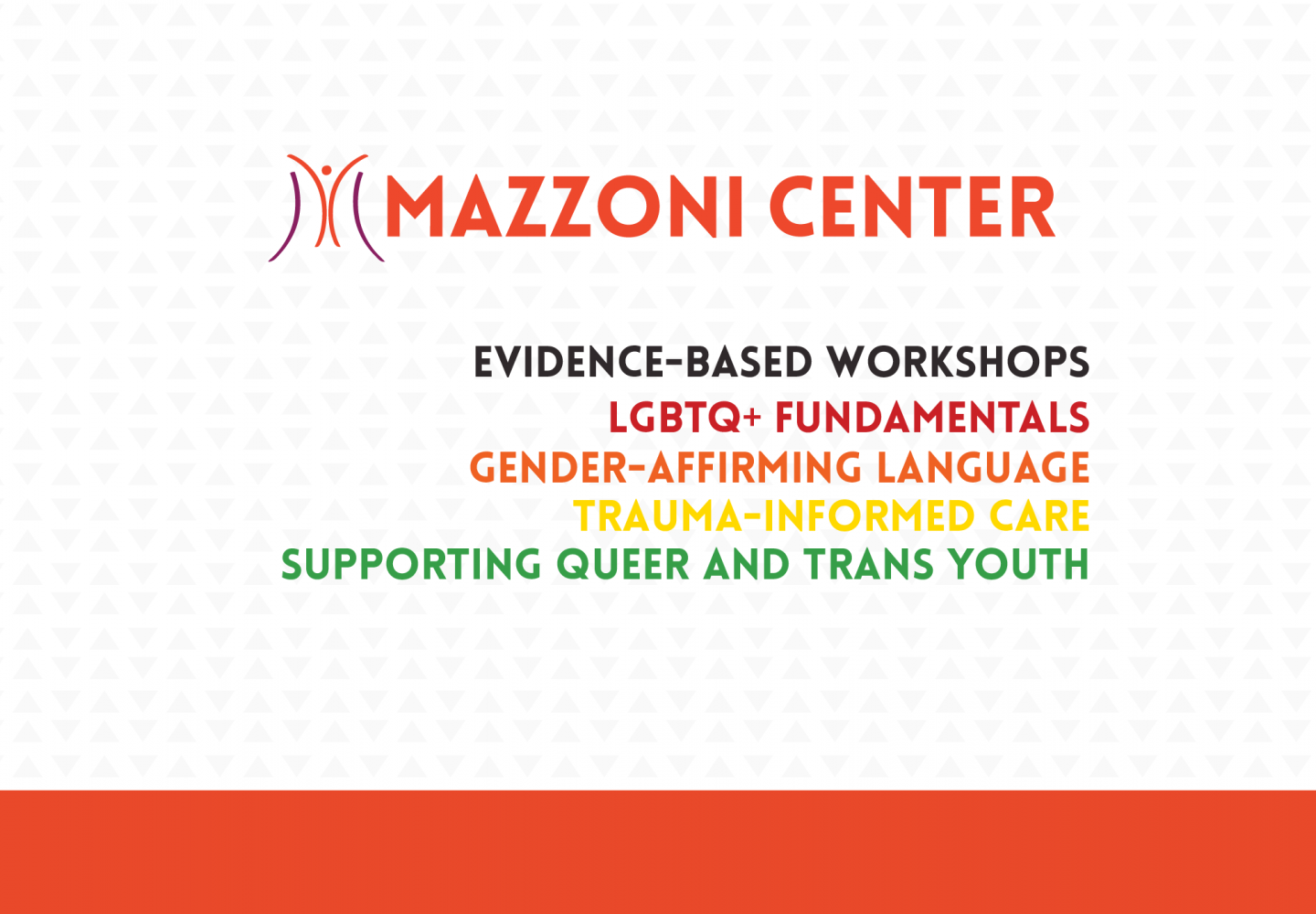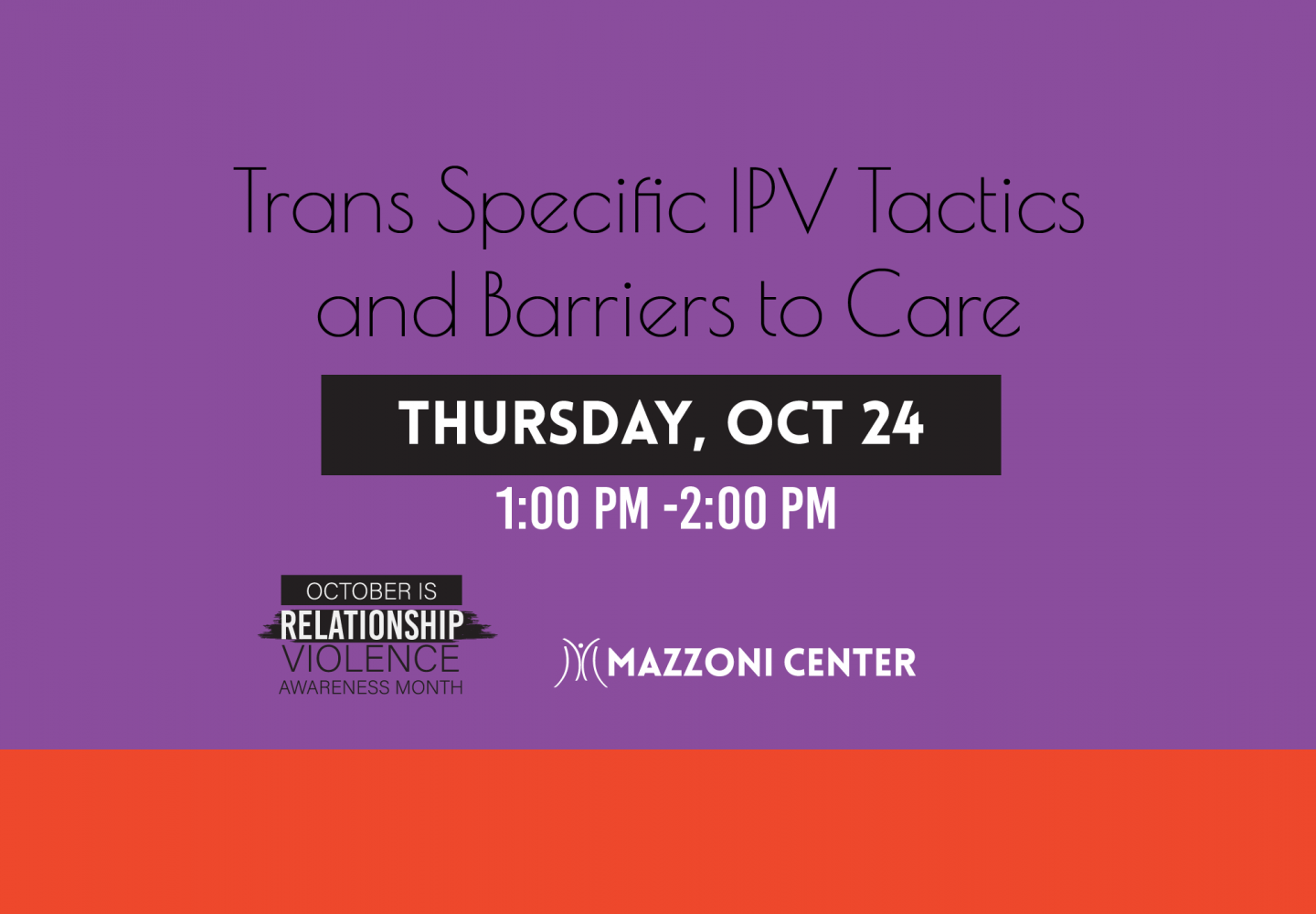Supporting Survivors | DVAM
Supporting Survivors | DVAM

This month, join Mazzoni Center on Mondays for Domestic Violence Awareness Month blog posts. We will be talking through how domestic violence affects the LGBTQ+ community, relationship red and green flags, boundaries, and how to support survivors. Our posts were created to both further awareness of DV and to help folks think through what a healthy relationship looks like to them, all through an LGBTQ+ affirming lens. If you have experienced DV, or support someone who has, there are resources available for you. Call the 24-hour, free and confidential Philadelphia Domestic Violence Hotline at 1-866-723-3014 for crisis intervention, safety planning, resources, and referrals.
This week’s blog post is all about supporting survivors of interpersonal violence. It can be difficult, but we will give the tools to support survivors to the best of your ability. If you were around for our Sexual Assault Awareness and Advocacy Month blog posts series in April 2022, you will notice that this post on supporting survivors is nearly identical. That is because the BEST method is great to use regardless of the type of violence that someone is facing- you might just need to tweak it a little depending on someone’s individual circumstances.
If someone discloses to you that they are a survivor or are experiencing interpersonal violence, it is incredibly important to proceed with love and care using the BEST method. BEST stands for: Believe them, Empower them, Support them, and Take care of yourself. Before exploring the BEST method, though, it is essential to ensure the survivor is not experiencing an immediate health or safety concern.
Health and safety concerns might look like suicidality, an injury that needs medical attention, or an unsafe home situation. If there is an immediate health or safety concern, work with the survivor to see how you can remedy the problem. Options could include going to the hospital, contacting an additional support person, utilizing a hotline service, helping the survivor get away from their abuser, staying with the survivor so they know they are safe, etc. Once you are sure that the survivor's immediate physical health and safety needs are being met, proceed to the BEST method!
B: Believe them. It is a big deal when someone discloses that they have experienced interpersonal violence. Disclosures can be difficult for survivors, and it is a sign that they trust you if they choose to disclose to you. Because of this, it is crucial to let the survivor know that you believe them. Victim blaming is very prevalent in the United States, and immediately letting a survivor know that you believe them can significantly impact their healing. You could say things like: Thank you for sharing that with me! I believe you, and I am here for you. I am so sorry that it happened to you, and I want to let you know I believe you. It must have taken a lot of courage to tell me about this, and I believe you.
You can also let the victim know what happened is not their fault and that you are here to listen. When the survivor is sharing, let them set the pace and do not pressure them to talk- they will tell you how much they are willing to disclose. Remember that you cannot fix what happened, but you can listen and let the survivor know that someone is supporting them.
E: Empower them. Interpersonal violence takes power and the ability to choose away from the victim or survivor. After IPV has occurred, it is important to give choices back to the survivor and let them determine what next steps (if any) will happen. When giving options, it can be helpful to avoid open-ended questions so the survivor does not get overwhelmed. Empowering the survivor can be as simple as asking them if they want the door open or closed while you talk or if they would like to drink water or coffee. Giving options, even for small-scale stuff, allows the survivor to control their environment and have power in what happens to them.
For the bigger stuff such as reporting to the police, disclosing to others, accessing victim services, or even going to the hospital, make sure to follow the survivor's lead. It can be second nature to assume what next steps the victim of interpersonal violence should take- but instead of telling them what you think is best, allow the survivor to make their own decisions. It is especially important not to pressure a survivor to leave an abuser or an abusive situation- only the survivor can say when they are ready to leave. It takes an average of 7 times to leave an abuser, and the survivor will need continued support.
S: Support them. After someone discloses to you, let them know that you are here to support them. You could ask if they have any other people in their life who can assist them or see if any immediate needs are not being met. Another option would be to talk about resources with the survivor or ask if they would like the number of a domestic violence hotline. (Call the 24-hour, free and confidential Philadelphia Domestic Violence Hotline at 1-866-723-3014 for crisis intervention, safety planning, resources, and referrals). Make sure to follow the survivor's lead and only support them in ways they have consented to- ask before giving any resources.
T: Take care of yourself. When you are actively supporting and talking with a survivor, the focus needs to be on them and their needs. That being said, it's vital that you check in with yourself after the fact. Hearing disclosures of interpersonal violence and supporting someone through it can be challenging. If you are not taking care of yourself, it may impact your ability to support the survivor. Taking care of yourself could look like de-escalating with yoga or meditation, seeing a counselor or
advocate to talk through any feelings that came up, or journaling and processing your emotions. It could also look like setting boundaries with the survivor and letting them know your limits for supporting them.
Supporting survivors can seem like a daunting task, but it can be made a bit easier by ensuring the survivor’s health and safety needs are met and by using the BEST method to support them. Remember, having one person that believes the survivor can have a significant impact, and your support for victims of interpersonal makes all the difference.
LGBTQ+ Survivors: You are not alone. If you have experienced interpersonal violence and need assistance, call the 24-hour, free and confidential Philadelphia Domestic Violence Hotline at 1-866-723-3014 for crisis intervention, safety planning, resources, and referrals.
This project was supported by 2017-UD-AX-0011 awarded by the Office on Violence Against Women, U.S. Department of Justice. The opinions, findings, conclusions, and recommendations expressed in this document are those of the author and do not necessarily reflect the views of the U.S. Department of Justice, Office on Violence Against Women.


